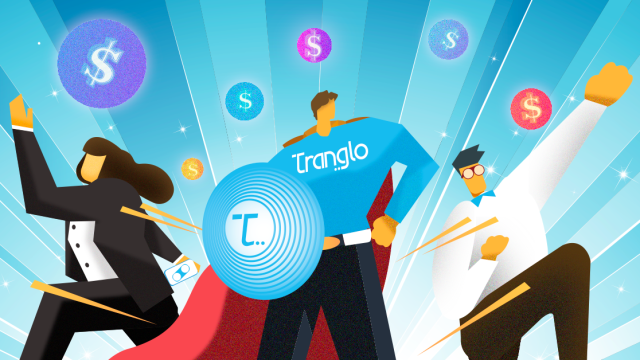The global cross-border payment industry is booming. According to FXC Intelligence, the total value of cross-border payments, currently approximately USD 190 trillion, is expected to increase by 53% to around USD 290 trillion by 2030. For B2B cross-border payments, the figures are equally impressive. Currently valued at USD 39.3 trillion, this sector is predicted to grow by 43% to USD 56.1 trillion by 2023, largely driven by the expanding B2B e-commerce market. With 11 billion tonnes of goods shipped annually, at an average of 1.5 tonnes per person, businesses must offer faster, more secure, and cost-effective payment solutions.
SMEs shift to the digital world
The Covid-19 pandemic accelerated the digital transformation of small and medium-sized enterprises (SMEs), pushing them to expand their cross-border activities to boost revenue. With B2B cross-border payments overshadowing consumer-initiated payments, the demand for improved payment flexibility and transparency has become evident. Despite 54% of consumers poised to increase their cross-border purchases, payment efficiency remains a significant pain point, as highlighted by a recent Airwallex report.
Challenges in B2B payments
Businesses face several challenges in cross-border transactions, including high costs associated with foreign exchange, taxes, and transaction fees. These are particularly burdensome for B2B transactions, which typically involve higher values. Timing and predictability are crucial, as delays can impact liquidity and disrupt supply chains. The lack of transparency in payment tracking can further complicate business operations, increasing the risk of fraud.
To navigate these challenges, businesses must select the right payment service partners, which can significantly enhance efficiency, reduce costs, and improve overall cash flow.
Choosing the Right B2B Payment Partner
Always adopt a customised approach when selecting a B2B payment company because there is no one-size-fits-all solution. The key is to find a balance that suits your business model and customer preferences. Consider factors such as the frequency and volume of transactions, as well as the preferred payment methods of your customers, whether it be cards, e-wallets, or cryptocurrencies. Choosing a provider with a multi-currency account is crucial for businesses dealing with multiple countries, ensuring smooth integration across various payment systems.
Introducing Tranglo Business
Recognised as one of the top cross-border remittance players globally by the International Association of Money Transfer Networks (IAMTN), Tranglo offers a robust solution for businesses with a Money Service Business (MSB) licence. Tranglo Business provides a flexible collection and payout solution, accommodating a variety of transactions from company to company or individual to individual payments, covering everything from goods and services to loans and capital injections.
Why choose Tranglo Business?
At Tranglo, our focus is on maximising affordability, connectivity, and service to help businesses achieve their growth objectives. Tranglo Business, our proprietary solution powered by single-API technology, connects your business to Tranglo's extensive network spanning over 80 countries and all major currencies. Utilising a real-time gross settlement and currency exchange system, it adapts to your payment and collection habits over time.
Benefits of choosing Tranglo Business

Cost-Effective: Offers lower fees for foreign exchange transfers compared to traditional banks and other financial institutions.
Speed: Transactions are faster than conventional cross-border banking routes thanks to our on-demand rail-switching technology. We process 80% of our transactions instantly.
Simplicity: Easy signup, intuitive API integration, and automatic compliance and security monitoring reduce transaction errors significantly.
For more information on how Tranglo Business can streamline your cross-border payments, contact us.







